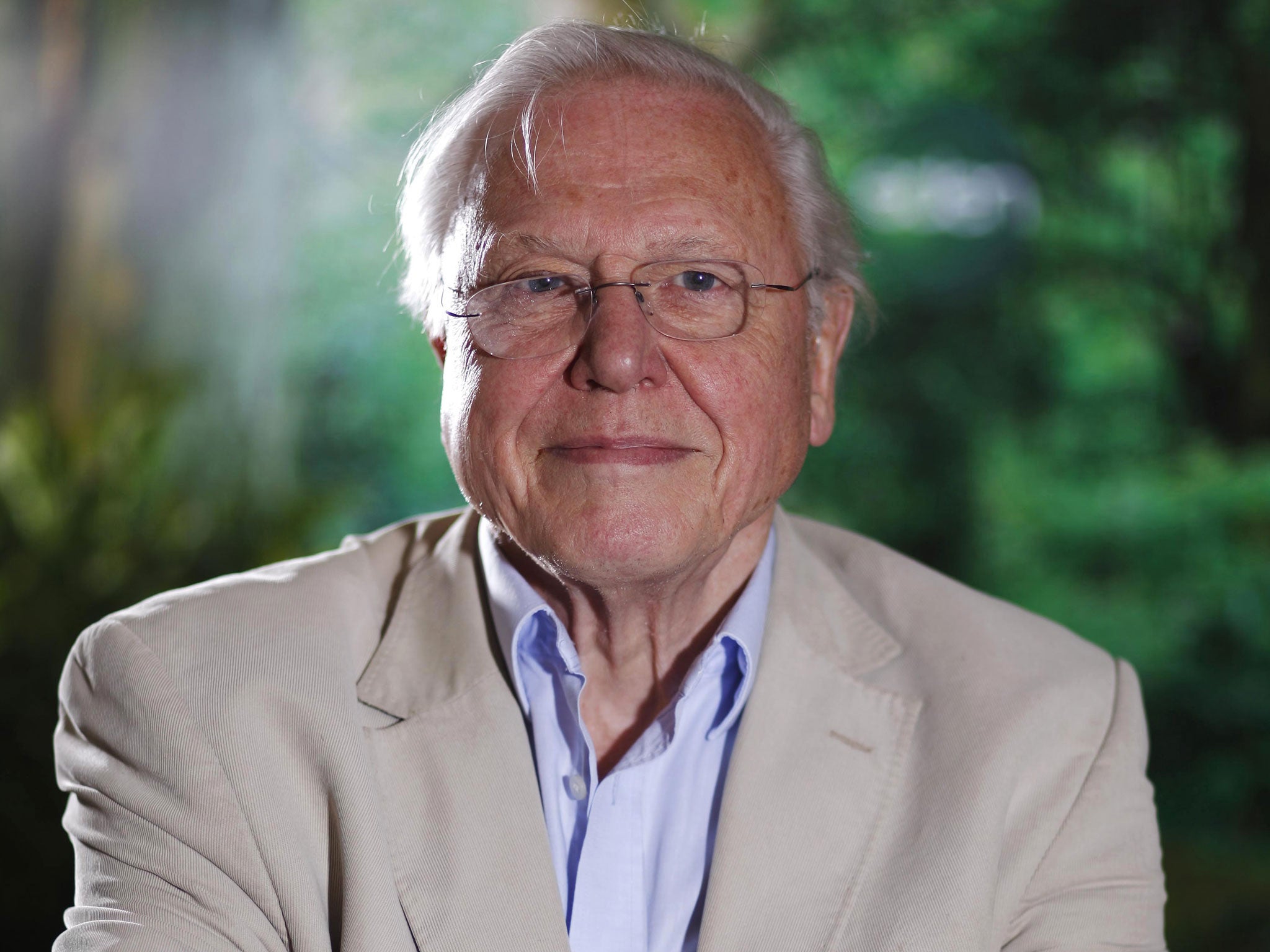Chinese state funds behind BBC's Attenborough series

Viewers hypnotised by the BBC's landmark series Africa, with its stunning images of fighting giraffes and baby turtles scuttling into the sea, are watching pictures partly funded by the state of China, it can be disclosed.
David Attenborough and the BBC’s acclaimed Natural History Unit are the stars of the wildlife spectacular but China Central Television (CCTV) emerged as late co-production partner and has become a key player in the global market for factual television blockbusters.
CCTV is also a key funder of a BBC landmark science series, Wonders of Life, which will be presented by Brian Cox and is to be shown later this year on BBC2, examining the story of life through physics. The Chinese also provided funds for last month’s BBC1 science series Supersized Earth, hosted by Dallas Campbell.
Buyers from China will be VIP attendees at the BBC’s annual showcase which takes place at Liverpool’s Albert Dock next month, when the organisation sells its wares to the world’s broadcasters to offset a freeze on the licence fee.
“CCTV is really quite an important partner in terms of factual programming now,” said Mark Reynolds, Director of Factual at BBC Worldwide. “We are going to talk to them about other projects coming up in the future because with the cost of these big productions we are always looking to bring in new partners where it’s the right editorial fit for them.”
The BBC’s relationship with China began ahead of the Beijing Olympics when it partnered with CCTV to make the six-part BBC2 documentary series Wild China, which was transmitted at the time of the 2008 games.
The BBC has stationed a senior sales representative in Beijing to manage its business with the Chinese state broadcaster, which manages a network of 22 channels.
“We want to continue that relationship in the high end factual programming,” said Reynolds. “Sometimes they are buying completed programmes right through to this more in depth co-production relationship. The focus at the moment is on them being a key co-production partner on our big landmark series.”
His colleague Jo Sermon, also Director of Factual at BBC Worldwide, praised China’s CCTV9 channel, which fills its schedule with documentary shows. “They are pitching for the best of the world’s factual they really are astute what they take,” she said. “They regularly get audiences of 90 million.”

Watch Apple TV+ free for 7 days
New subscribers only. £8.99/mo. after free trial. Plan auto-renews until cancelled

Watch Apple TV+ free for 7 days
New subscribers only. £8.99/mo. after free trial. Plan auto-renews until cancelled
BBC Worldwide has also signed digital deals with the Chinese cable channels Wasu and Chunghwa to screen BBC shows, and has a similar relationship with video-on-demand sites BesTV and Qiyi (which is described as the Chinese version of American online TV platform Hulu).
The BBC Showcase, which is of critical importance in generating revenues for the broadcaster at a time when many departments are facing budget cuts, will this year be attended by a record number of 700 international delegates.
The Africa series will be given star billing and has the potential to be sold for broadcast on mobile devices and as a video-on-demand service as well as being offered in traditional television rights deals.
BBC executives expect it will be sold to more than 200 countries and are hopeful that it will exceed the popularity of Attenborough’s Planet Earth which was bought in 245 territories, a BBC record.
Ms Sermon said foreign buyers had initially been doubtful that Africa could deliver pictures that were not already familiar to natural history audiences. “There was definitely a reaction right at the beginning of ‘What is there that we haven’t seen?’ – there was scepticism, there’s no question,” she said. “But the show has genuinely turned people’s views around and people are eating their words.”
Mike Gunton, creative director at the BBC Natural History Unit (NHU), praised the scientists working in Africa who had supplied the production team with untold stories from their latest research. “You couldn’t just do another wildebeest crossing another lion hunt that had been so many times,” he said.
American ecologist Craig Packer provided the tip for a sequence on lizards eating flies off the backs of lions. “You want lions in your series obviously but doing things other than the traditional lion behaviour,” said Gunton. “This was perfect – not only were they in it and looking lovely but for once being the stooges and not the heroes.”
Meerkat expert Tim Clutton-Brock gave Gunton’s team a quirky tale of Britain’s favourite mongoose being duped by a drongo bird. “We didn’t want to do another story where meerkats were the heroes - we wanted to flip it on its head.”
And the ground-breaking imagery taken by camera operator Justine Evans of Black Rhinos partying at night was the result of a technological breakthrough in the community of wildlife camera specialists based in the West Country, close to the NHU. “We were able to get those images without any illuminations, even infra-red lights, just using the light of the moon and the stars,” said Gunton.
Subscribe to Independent Premium to bookmark this article
Want to bookmark your favourite articles and stories to read or reference later? Start your Independent Premium subscription today.

Join our commenting forum
Join thought-provoking conversations, follow other Independent readers and see their replies